LGBTQ
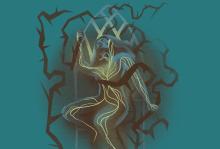
THE FIRST TIME I became conscious that I was carrying the effects of religious trauma, I had just moved to Seattle and was sitting in a church, sweating.
My heart was beating fast; I couldn’t understand what was happening. This church, one I had chosen expressly because of its progressive, LGBTQ+ affirming stance, was supposed to be safe for someone like me, a queer person who deeply valued my faith. But I didn’t feel safe. I looked at the faces in the room with suspicion, searching for any indication of a bait-and-switch, and left the building quickly once the service was over.
Despite what I knew about the church — they welcomed LGBTQ+ people at any level of leadership, were committed to anti-racism work, and weren’t afraid of doubt or theological exploration — my body told me another story. As I sat in the cold folding chair, I tried to reason with myself, repeating these facts to calm down. But I didn’t feel calmer; I felt worse. I sat on my hands, legs shaking, as I waited for the service to end.
Because I had moved to Seattle to work on a master’s degree in counseling psychology from an institution that specialized in trauma, I soon learned what had happened: In that moment, my body had experienced the effects of trauma. Even though I cognitively knew the church was supposed to be safe, my body couldn’t discern this church from all the churches I had been in before — churches filled with people who weren’t afraid to tell me I needed to become straight for God to save me from hell. My body was sending warning signs: Be careful, environments like this aren’t safe. Despite the years of work I had done to detach myself from the rigid belief system of my youth, despite the ways I had fought to find a more life-giving approach to theology, I was beginning to reckon with the reality that changing my beliefs didn’t mean I had healed from the environments in which I was raised.
Now, years later, I see more people waking up to the realities of lingering religious trauma. When I scroll through my streaming apps, I see documentaries such as Shiny Happy People, Pray Away, and Hillsong: A Megachurch Exposed that detail different forms of religious harm. I think this growing awareness of religious trauma is part of the driving force behind “deconstruction,” a buzzword that describes the process of reevaluating, changing, and sometimes abandoning one’s beliefs. But what I don’t see as often on Netflix — or on podcasts or on social media or at church — is honest talk about the process of healing. And as someone who now works as a therapist helping survivors of religious harm find healing, I know there is a lot more to say.
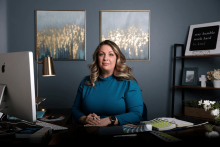
In a blow to LGBTQ+ rights, the Supreme Court on Friday ruled that the constitutional right to free speech allows certain businesses to refuse to provide services for same-sex weddings, ruling in favor of a web designer who cited her Christian beliefs in challenging a Colorado anti-discrimination law.
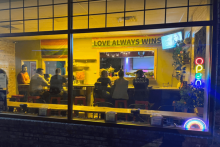
The working-class town of Bellefontaine (pronounced “bell-FOUNTain), nestled among the farm fields and hills of rural Ohio, in the heart of Rep. Jim Jordan’s legislative district, is not the easiest place to grow up queer. The churches are much more likely to hold to conservative views on sexuality than be LGBTQ+ affirming, and “Trump Won” flags far outnumber rainbow Pride flags.
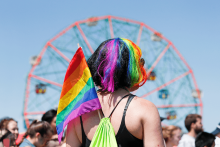
A Christian-owned wellness center is exempt from the federal law prohibiting employers from discriminating on the basis of sexual orientation and gender identity, a federal appeals court ruled on June 20.

“To live fully and authentically.” It’s a phrase that resonates for me as someone who came into their queerness later in life. For a long time, the possibility of living fully and authentically felt just beyond my reach; I felt I was skimming the surface of my being and longed to be fully immersed — soaked and drenched — in who I am. But I was afraid. What would living authentically mean for my place in the world? As a second-generation Korean American who has long struggled to be seen and accepted, I wondered if being queer would foreclose this possibility.
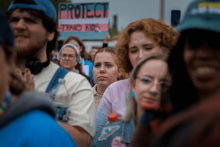
I know some Christians do not fully share my theological convictions about gender and sexuality, but on issues of human dignity and civil rights, the church should be firmly united: Transgender and nonbinary siblings are God’s children made in God’s very image and likeness. Prohibiting lifesaving medical care, tolerating discrimination, or denying someone the ability to use their name is wrong; you cannot deny people those rights because you disagree with their beliefs about gender or sexuality. Christians should be standing in the breach in defense of the full humanity, dignity, and rights of their trans siblings.
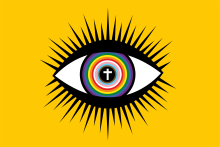
Asexuality and aromanticism describe those whose orientations are often defined by lack and rarity. We’re atypical in that we don’t experience sexual and/or romantic attraction, or when we do, it’s the exception to the rule or under certain conditions. We’re inconvenient to remember — on all sides of the political and religious spectrums.

Historically, there have been many Catholics who have pushed back against gender norms. But like modern conservatives who focus on the outrageous aspects of the Sisters of Perpetual Indulgence while ignoring the group’s tireless work caring for the sick, homeless, and poor, the Catholic hierarchy has also attempted to mute the stories of gender-nonconforming people throughout its history. And in doing so, the church hierarchy has often ignored the acts of mercy so central to Catholic teaching.

In short, the gospel demands that the church asks some basic sociological questions to help it navigate difficult social waters. In regard to trans people, our questions should be informed by the work of people like organizer and writer Dean Spade, who wrote the book Normal Life. How does our society, with all its norms, move trans people closer to vulnerability and death, or closer toward security and life?

In my last years of college before I started seminary, I was in the wilderness. I had to finally grapple with feelings I’d been trying to avoid for years: that I was attracted to women, and that something about the gender I’d been assigned wasn’t right.
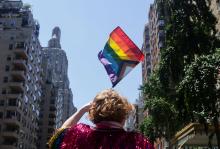
The current discourse around right-wing politics and religion has been focused on the phrase “Christian nationalism.” Christian nationalism is a catchall for a variety of beliefs that generally claim the U.S. is founded upon Christian ideas and that the country’s current laws ought to reflect those beliefs. Rep. Marjorie Taylor Greene (R.-Ga.) is perhaps one of the most well known politicians in the U.S. who identifies as a Christian nationalist, but, according to a survey done by Pew Research, “Eight-in-ten White evangelical Protestants (81 percent) say the country’s founders intended it to be a Christian nation.” Christian nationalism, as a term, is fine but imprecise. What we’re seeing from lawmakers, like those in Missouri but also in other states, too, is more properly defined as “Christofascism.”
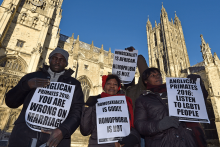
The Church of England will refuse to allow same-sex couples to get married in its churches under proposals set out on Wednesday in which the centuries-old institution said it would stick to its teaching that marriage is between a man and a woman.
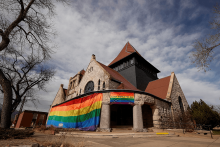
Thom Andreas was a gay Christian kid in the 1990s when his hometown of Colorado Springs, Co. was becoming known as the “evangelical mecca” or “evangelical Vatican.” And this gave Andreas a front-row seat as the movement advocated against LGBTQ rights and dignity in politics and faith.
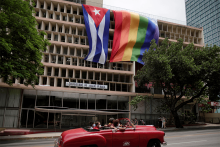
Cubans celebrated the results of a landmark referendum on Sept. 25 that legalized same-sex marriage, redefined the legal family, expanded rights for the elderly and children, and more.
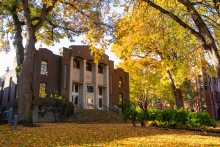
A group of students, faculty, staff, and alumni from Seattle Pacific University filed a lawsuit against the university’s board of trustees after over a year of protesting policies that do not allow full-time staff and faculty in same-sex relationships to be hired.
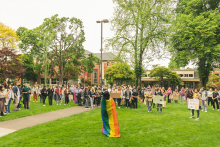
Over the last year, the majority of Seattle Pacific University’s community has been unwavering in its affirmation of LGBTQ equality on campus ... Nevertheless, on July 1, the evangelical university’s board of trustees affirmed — for a third time in about a year — that the school would not change its employee policy.

I was in elementary school when the first Harry Potter books were published in the United States. At the time, I was a painfully shy and awkward child; I treasured my library card and found solace in the stacks of books I carried home from our local branch. Though I was a prime target for a sensational new children’s book series, my parents — like the rest of our fundamentalist Baptist church — deemed anything about witchcraft inappropriate reading for good Christian children.
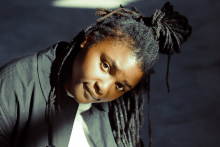
“I don’t think we talk enough about the delight in sexuality, especially spiritually,” Oladokun told Sojourners. They also take inspiration from the spirit of the Last Supper, comparing queer love to communion and noting “there’s something kind of romantic about Jesus at a candle-lit dinner with a bunch of his bros being like, ‘I am this bread. I am this wine. I am what you can feed off of in this moment.’”
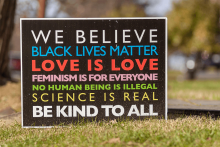
My shtick on Twitter is taking pictures of myself with kitschy signs that I find wherever I go. You know the signs I’m talking about. They are the signs that embody the motto of “Live. Laugh. Love.” If you go to your local Hobby Lobby, there is an aisle dedicated to this, um, décor.
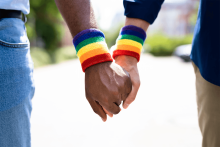
Over 65 percent of Black Protestants, Hispanic Catholics, white Catholics, white mainline Protestants, and white evangelical protestants say their friendship networks are exclusively heterosexual. Eighty percent of white evangelicals said they did not have any LGBTQ people in their friendship network, while 56 percent of religiously unaffiliated people said the same.